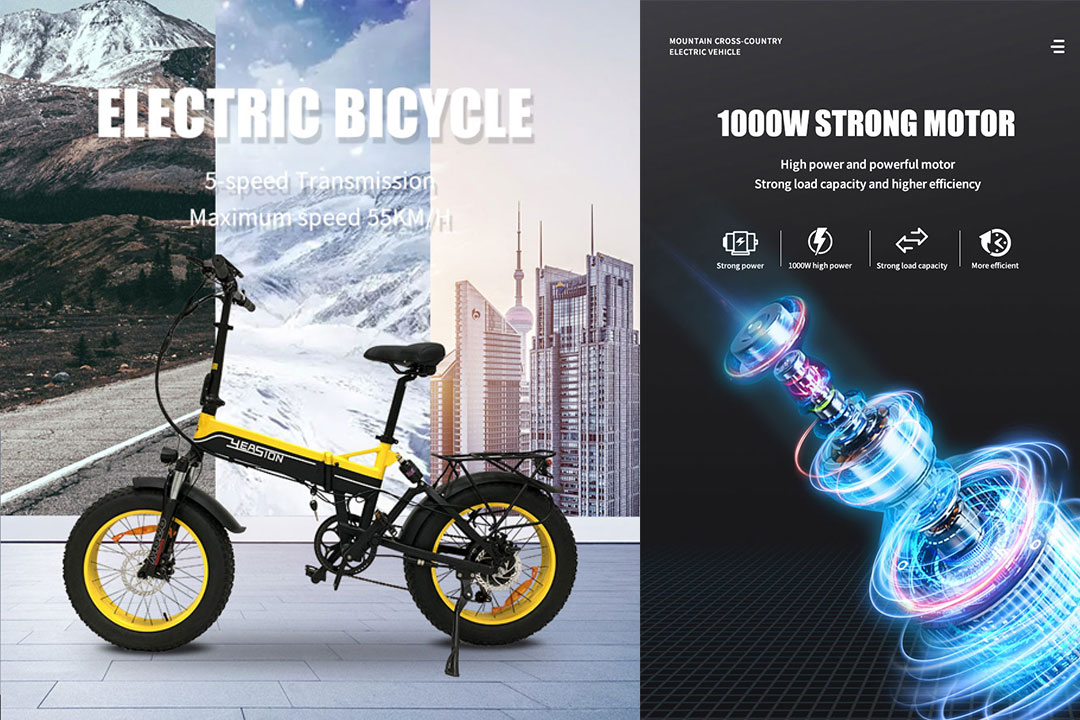In an era marked by rapid technological progress and heightened environmental awareness, the emergence of smart electric bicycles has garnered significant attention as a solution to contemporary urban transportation challenges. This innovative solution seamlessly integrates electric propulsion with intelligent technology, providing a greener and more convenient alternative for urban commuters. Let's delve into a discussion on what defines a smart electric bicycle solution and the potential impact it holds for our urban landscapes.

A smart electric bicycle is more than just a means of transportation; it represents a comprehensive solution to the evolving needs of urban mobility. At its core, this solution integrates an electric power system, typically powered by batteries, with a suite of intelligent features. These features may include smart navigation systems, connectivity with smartphone applications, and remote control capabilities. The electric assistance system further enhances the ease of cycling, making it a versatile and sustainable choice for urban commuting.
Advantages and Contributions:
One of the primary advantages of smart electric bicycles is their contribution to environmental sustainability. By utilizing electric power, these bicycles produce zero emissions during operation, reducing the carbon footprint associated with traditional fuel-powered vehicles. This aligns with the global push towards cleaner and more sustainable transportation options.
The integration of intelligent technology sets smart electric bicycles apart. Features such as real-time navigation, remote control functionalities, and connectivity with mobile apps enhance the overall user experience. These technological advancements not only make commuting more convenient but also contribute to the development of a smart and connected urban transportation ecosystem.
The design of smart electric bicycles emphasizes flexibility and convenience in urban commuting. Their compact size allows for easy navigation through congested city streets, providing an advantage over larger vehicles in traffic. The electric assistance system makes cycling more accessible to a broader range of individuals, promoting physical activity while offering a practical means of transportation.
Challenges and Considerations:
While the smart electric bicycle solution presents numerous benefits, it is essential to acknowledge potential challenges and considerations:
The success of smart electric bicycles relies on supportive infrastructure, including charging stations and dedicated bicycle lanes. Cities need to invest in such infrastructure to encourage the widespread adoption of these innovative solutions.
Developing clear and supportive regulatory frameworks is crucial for the integration of smart electric bicycles into existing transportation systems. Regulations should address safety, usage guidelines, and compatibility with existing traffic rules.
The accessibility and affordability of smart electric bicycles are important factors influencing their adoption. Striking a balance between advanced features and cost-effectiveness will be pivotal in ensuring a broader demographic can benefit from this solution.
As we look to the future, smart electric bicycles are poised to play a significant role in shaping urban transportation. Their eco-friendly nature, integration of intelligent technologies, and adaptability to diverse commuting needs position them as a key player in sustainable mobility solutions. With continued technological advancements, collaborative urban planning, and increased awareness, the smart electric bicycle solution has the potential to transform the way we navigate and experience our cities, fostering a cleaner, smarter, and more interconnected urban environment.
- Previous: The Green Wave of Electric Mopeds: Trends and Developments
- Next: Electric Scooter Assembly Plant: The Manufacturing Behind Smart Mobility
Post time: Jan-15-2024








